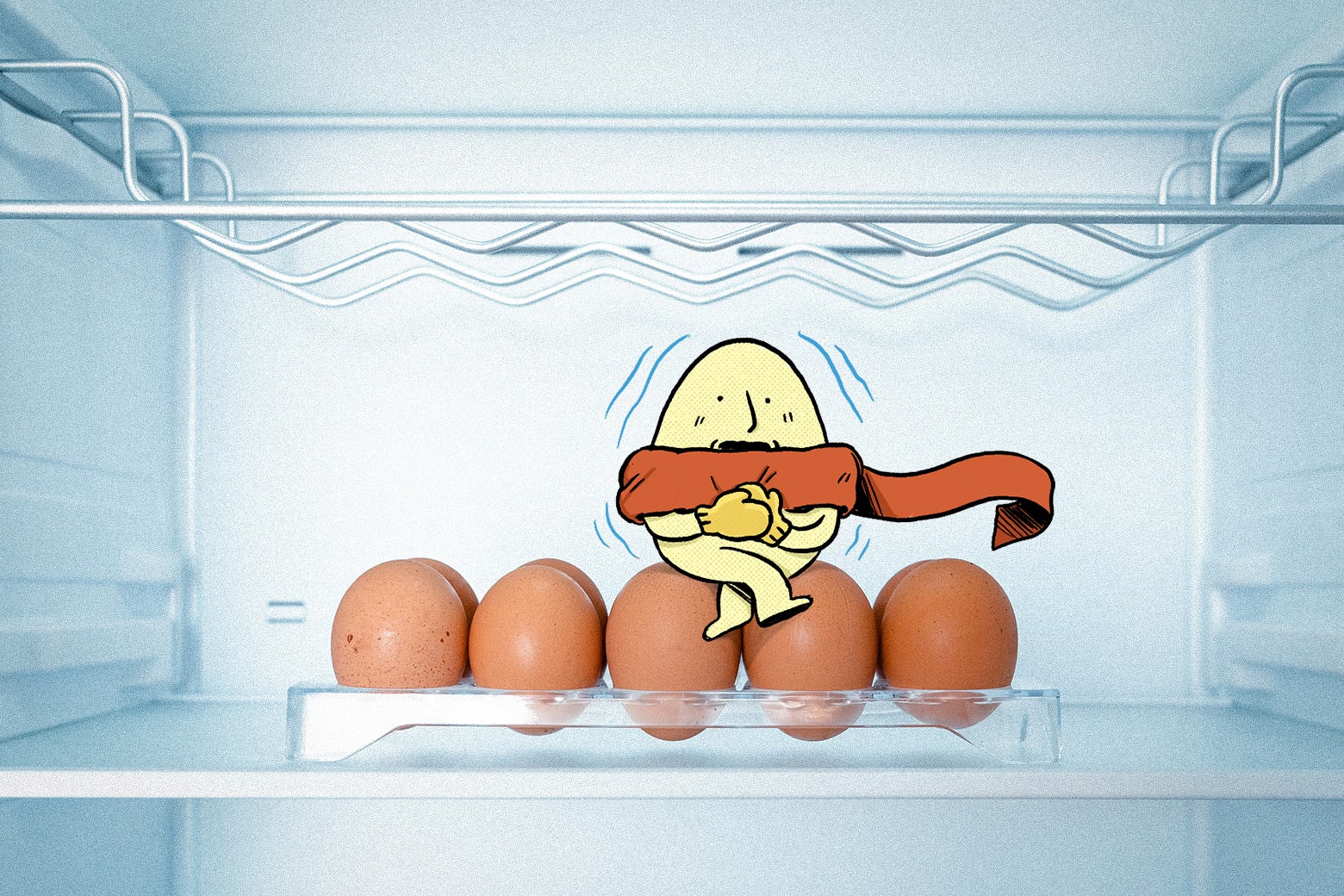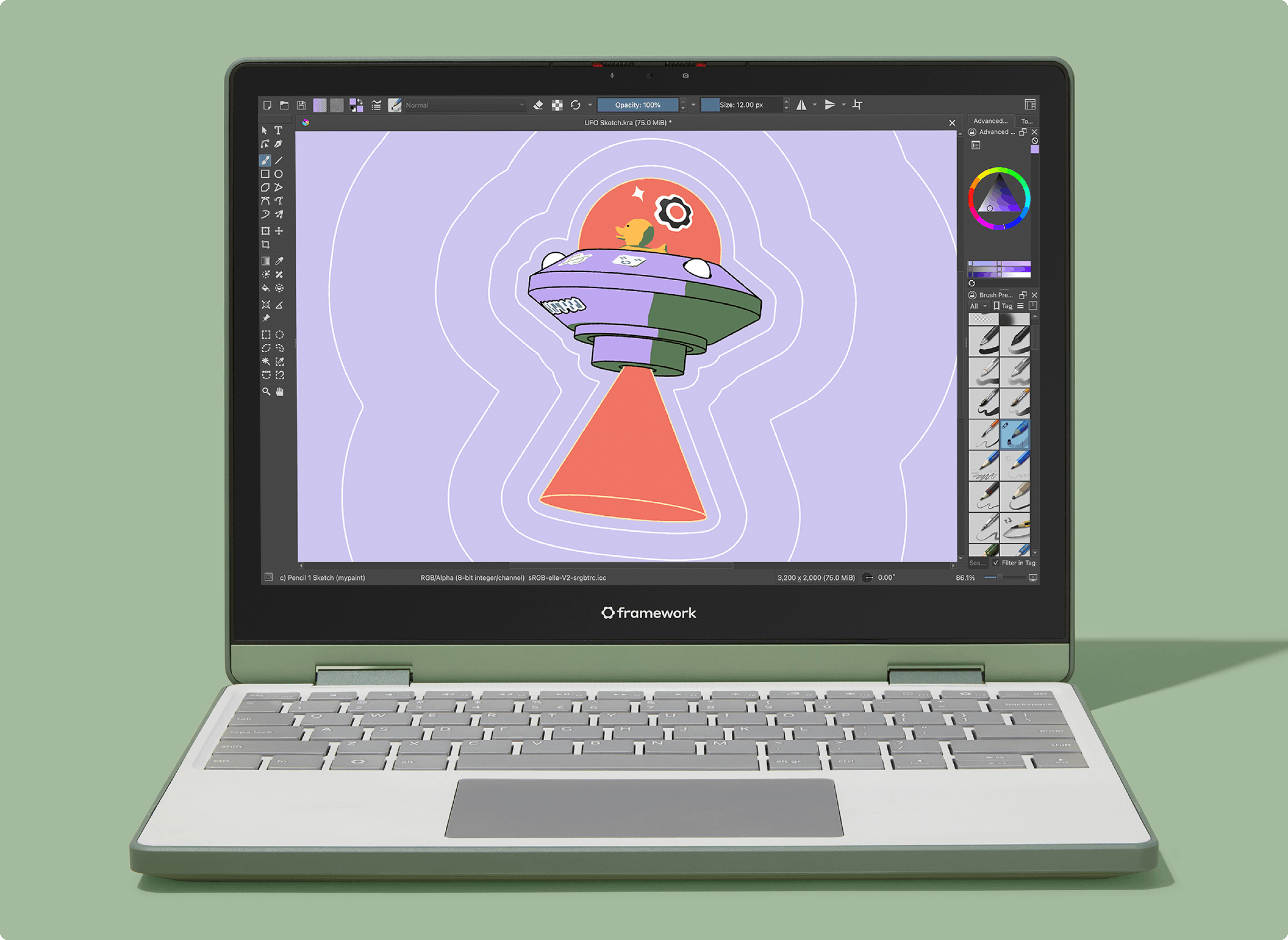
This is part of Egg, an attempt to explain why Americans have absolutely lost their minds over egg prices. The Eggsplainer briefly considers some of our weirdest behaviors around eggs.
There’s something that just feels right about refrigerating eggs. Maybe it’s their proximity to meat, which we wouldn’t dare leave out in the heat. Wouldn’t a room-temp egg go … bad? Surely not if in most of the world, like Europe and elsewhere, it’s typical to keep eggs out on the counter with no problem. Why are we different?
It all comes down to an earlier fork in the road: whether the producer washed the egg or not.
American producers wash their eggs; European producers don’t. Washing removes any dirt and poop, but it also removes the egg’s external membrane layer, which helps prevent bacteria from entering the shell. Once that membrane is gone, the shell’s pores are more exposed to potential contamination. Chilling a washed egg reduces that risk, because low temperatures slow down gas exchange between air and egg.
In short, it’s the washing that determines the chilling. “I don’t know of any country that would potentially not wash, but refrigerate,” said Vincent Guyonnet, a poultry veterinarian and scientific adviser to the World Egg Organization. Because the two processes need to be aligned, many countries in Europe have actually banned egg washing, which makes Guyonnet chuckle. “It’s so funny,” he said. “A different approach to achieve the same results.”
Well, why wash? From a food safety perspective, there’s no significant difference between the two methods. Fecal matter on a shell is more a matter of disgust than a safety concern (but always wash your hands). Americans have a history of preferring things to be clean and sanitized, so that may have contributed to the adoption of the practice.
However, refrigeration does have a big advantage over the counter: It lengthens the egg’s shelf life. Eventually, membrane or no, there will be some gas exchange, causing the egg white to become more watery and leak into the yolk, ultimately breaking the yolk. Some evidence suggests that over time, the egg might even lose nutritional value, Guyonnet said. And sitting too long can increase the risk of salmonella infection; chilling the egg slows that increase down.
Ultimately, refrigeration is “the luxury of a rich country.” It’s expensive to sell a product that requires constant refrigeration from packing station to store. In recent years, Australia tried to become a wash-refrigerate country due to the fact that their heat caused eggs to quickly decline in quality. But it was too expensive to maintain.
If it’s just a processing thing, it’s fine if I leave my fridge eggs out on the counter for a while, right? Wrong. If you go rogue-European at home, the egg will “sweat” (aka water will condense on its surface as it warms up), and the shell can then absorb that water, which can carry bacteria from the environment into the shell: food poisoning waiting to happen. Once an egg is refrigerated, you can’t go back.
That said, if you collect eggs from your chickens out back, there’s no need to start the refrigeration process. But unless your fridge is packed, it’s a good idea.
Sign up for Slate’s evening newsletter.









 English (US) ·
English (US) ·